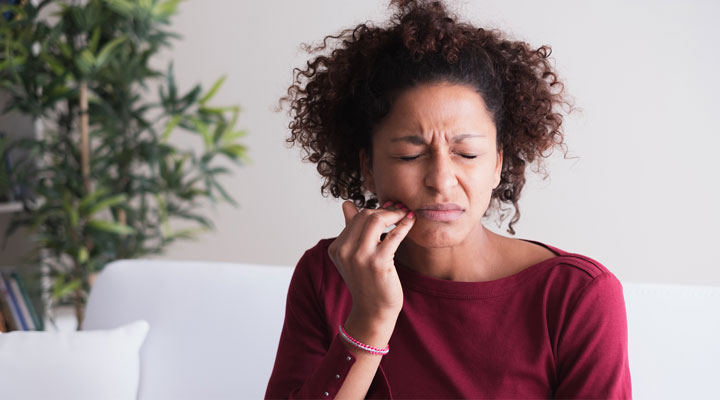
Did you know that flossing daily and seeing the dentist twice a year can reduce your risk of developing oral cancer?
Flossing is an important oral health habit that promotes a healthy mouth and body. Yet, only 30% of Americans floss daily, despite the health benefits.
Many people are surprised to learn that poor oral health is linked to the development of oral cancer. However, studies have found that people who practice good oral health habits are less likely to develop oral cancer.
Oral cancer causes
In a study presented at the 2019 American Academy for Cancer Research (AACR) meeting, researchers compared the behaviors of individuals who developed oral cancer and those who did not. They found that people who did not develop cancer went to the dentist at least once a year and flossed daily.
One summary of this research states that individuals who “went to the dentist less than once a year had nearly twice the risk of developing non-HPV oral cancer than those who went once a year or more.” Additionally, individuals who didn’t floss daily “had over twice the risk of developing non-HPV oral cancer than those who flossed more.”
What is oral cancer?
Oral cancer affects your mouth and the areas surrounding it.
Oral cancer can affect your:
- Throat
- Lips
- Mouth
- Tongue
- Cheeks
More than 90% of oral cancer is caused by the cells of the throat and mouth mutating or altering. Cell mutation, or changes in the cells in our mouths, can be caused by:
- Genetics
- HPV (Human Papillomavirus)
- Sun exposure
- Weakened immunity
- Alcohol consumption
- Tobacco consumption
Signs and symptoms of oral cancer
If you or someone you love suspects they may have oral cancer, visit your dentist and doctor if the symptoms persist for more than two weeks.
Symptoms of oral cancer include:
- A lip or mouth sore that isn’t healing
- White or reddish patches inside the mouth
- New growth or lump in the mouth
- Difficulty or pain when swallowing
- Loose teeth
- Mouth or ear pain
Dental visits help catch cancer in the mouth before it develops further. Your dentist is your first line of defense when it comes to preventing oral cancer. Tell them about any problems you have when chewing, swallowing, speaking, or moving your tongue and jaw. Additionally, quit smoking (or don’t start) and drink alcohol in moderation. Smokeless tobacco products can also increase your risk of oral cancer.
What to do if you have oral cancer
Your dentist cares about more than your mouth. They care about your overall well-being, too. If they see a warning sign of oral cancer, they may have you return after a few weeks to reassess. They may also take a biopsy to confirm a diagnosis. Your dentist will likely refer you to another dentist or physician for a second opinion. Talk to your dentist about any questions you have during the process. To find a dentist in your area, click here.
Start flossing now
It’s never too late to start taking care of your oral health. Initially, you may experience sensitivity or bleeding during flossing, which is normal. When we don’t perform the right oral hygiene practices, plaque builds up between our teeth and gums. This plaque is made of cavity-causing bacteria that irritate the tissue of our mouth. When we floss and brush well, we remove the plaque that has been living there for quite some time. The disruption can cause bleeding. If the bleeding does not stop over time, it’s important to tell your dentist.
Flossing and seeing your dentist regularly is not only good for your teeth, but can also help save your life!
- Looking for tips on brushing and flossing? Click here.
*Updated November 2022

